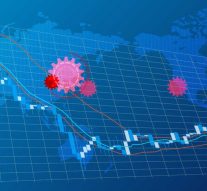
Is post-coronavirus EU economy possible ever again?
Economy 23 May 2020Quite often is heard or read in media some dilemmas that relate to post-Covid19 everyday life. “Will we ever be able to live normal again as before” was questioned by some national electronic media outlets sparking the discussion of the postcovid19 globe. But what will happen in the global level? Will the Covid19 pandemic spark the influence onto European economy? Beside the question of when the EU economy will fully recover (if ever), one would ask: is post-coronavirus EU economy possible ever again?
The post Covid19 plan for economic recovery is here. In spite of some rumours that these would heavily be obstructed by some EU Member States, the Commission has announced package of 500 billion euros to ignite the EU economy. The EU Parliament has, however raised these figures to impressive 2 trillion euros! As announced on its web page “the EU is in the midst of devising its next long-term budget and as the response to the current crisis will define developments over the coming years, it makes sense to add recovery measures to the plans”. But Parliament insists that the recovery package should come on top of the needs of existing EU programmes and not take funding away from them.
On May 15, the Parliament has adopted a Resolution which calls upon establishing a firm budget to foster the EU27 bloc’s economy. It also calls on the Commission to present a massive recovery package in line with Parliament’s resolution of 17 April 2020, and urges for the Recovery and Transformation Fund to be financed through the issuance of long-dated recovery bonds guaranteed by the EU budget, maximising the headroom and subject to a repayment plan. Furthermore, the Parliament’s Resolution underlines that the Fund will be a principal component of an overall package providing an investment impulse, including by drawing in private investment, of EUR 2 trillion in size and be of a duration commensurate to the expected deep and long-lasting impact of the current crisis.
The MEPs urged “for this massive recovery package to transform EU’s economies and strengthen their resilience through the pooling of strategic investments to support SMEs, and to increase job opportunities and skills to mitigate the impact of the crisis on workers, consumers and families”. Furthermore, it calls for investments to be prioritised into the Green Deal, the digital agenda and achieving European sovereignty in strategic sectors, with a consistent industrial strategy and while shortening and diversifying supply chains and reorienting trade policies. This Resolution also stresses the need for the creation of a new standalone European health programme.
MEPs remind the Treaty provisions that the EU Budget revenue and expenditure shall be “in balance and that the institutions shall ensure that financial means are made available to allow the Union to fulfill its legal obligations” in respect of third parties. The Parliament proposes instead of putting the entirety of the outstanding amount in the yearly budget, only the payments due in each year must be covered within the headroom under the Own Resources ceiling, while maintaining full transparency over outstanding repayments of interest and principal and notwithstanding the necessity of a repayment plan.
What is interesting in this Resolution is an appeal to the EU leaders and the Commission to take bold decisions regarding the reform of the EU own resources system, including the introduction of a basket of new own resources. Some of the media had already titled this plan as the post-Covid19 “Marshall Plan for Europe”.
This Marshal Plan 2.0 is a consistent way to recover the EU economy at least in its beginning phase. However, are these principles in line with the free market economy which the EU is based on? Will this meritocracy increase the national state powers after the crisis is over? Even though the plan highlights that the Fund “should not put an additional burden on national treasuries” and should be guided by the principles of sound finance, it seems as the EU is quite losing its ability to provide free market game and enters the danger zone of trade and economic activities which are based on pure national country’s budgetary direct help. It is for these reasons that we might not have the same EU economy as we did before the Covid19 crisis occurred, but their outlooks are at this stage extremely gloomy.


